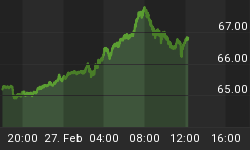The crypto-sphere underwent a sort of transformation in 2018…
Consider it the awkward teenage years of the burgeoning space.
Bitcoin stumbled, struggling to find its place in the world. And regulators, officials and traditional economists didn’t make it much easier.
Now, going into 2019, the industry is caught between two warring worlds. That of Big Finance, and the decentralized dream of the cypherpunks of yesteryear.
While some ‘old heads’ are still carrying on the idealistic spirit of the world’s first cryptocurrency, a wave of new blood that is less concerned about anonymity and security and more focused on taking control the transformative qualities of this ‘new money’ has entered the mix.
So which will it be?
The answer isn’t so easy. Can we have our cake and eat it too?
The case for decentralization
The crypto revolution was the catalyst which sparked the resurgence of an old idea. The idea of a decentralized world where we were all on an equal playing ground.
It was an inclusive movement where, for the first time in a long time, the charge against the establishment was led by the people and for the people.
The crypto movement wasn’t about occupying Wall Street, it was about ignoring it completely and carving out our own financial futures.
And that idea translated well.
Beyond big finance, the tech behind bitcoin sent ripples through every industry imaginable. From energy to retail, no stone has been left unturned.
Because blockchain, right? And the hype is justified. It’s great technology, after all.
Everything from how we vote in a democratic election to our own identification can benefit from this tech. It has it all – it’s a decentralized solution that offers transparency, accountability and real functionality.
If you’re reading this, I’m sure you’re with me so far… Related: Decentralizing The Internet One Torrent At A Time
So what’s the problem?
Well, maybe we’re not as decentralized we hoped we’d be by now.
The institutional conundrum
One of 2018’s biggest buzzwords was ‘institutional adoption.’
The influx of institutional involvement was supposed to be the chocolate syrup on top of our sundae. We were supposed to leave $20,000 in the wind, hopefully saving John McAfee from, well, himself in the process.
Institutions piled in, yeah. But it didn’t quite have the impact we expected.
In fact, it was quite the opposite.
Bitcoin lost almost 85 percent of its value. Other cryptos fared even worse. And while crypto enthusiasts and analysts alike scramble to find a clear cause for the decline, the answer might not be as black-and-white as many are making it out to be.
There’s a whole array of factors at play. From regulation and market manipulation to sheer negative sentiment and a general loss of interest, every little piece of news fell on markets like a piano in an episode of Looney Toons.
And worse still, they are taking the industry from us.
Institutional trading volume is up while small trades and retail transactions have flatlined. Moreover, the dream of decentralization is slipping through our fingertips right before our very eyes.
Related: Is Disney Becoming Inaccessible For Everyone But The Rich?
But not all is lost just yet…
2019 is the year we go back to the basics
Seen as the long game in Bitcoin, decentralization is a force many in the space are truly fighting towards, and progress is being made.
If you take the time to sift through the news of Big Banks entering the space and the price hype that led so many astray, there are actually a lot of really interesting projects being built.
But the biggest problem is that no one is using them. Yet.
When the crypto bubble burst, a lot of would-be participants abandoned ship, and we’ve got to get them back on board.
I know it’s a sore subject for those who told their friends to buy in at bitcoin’s 2017 peak, but it’s time to rally the troops once again. And this time, it’s not about how much money you can make, but why we need to make the shift if the first place.
The benefits of Bitcoin do not lie solely in its dollar value, after all.
From Liquidity to RSK and the Lightning Network, developers are constantly adding new functionality to the world’s first blockchain, and it’s not likely to slow down any time soon.
If 2017 was the year of the ICO, and 2018 was the year of institutional, 2019 will be the year we take it all back and return to our roots.
2019 will be the year Bitcoin truly finds its footing.
"Decentralization has, not only an administrative value, but also a civic dimension, since it increases the opportunities for citizens to take interest in public affairs; it makes them get accustomed to using freedom. And from the accumulation of these local, active, persnickety freedoms, is born the most efficient counterweight against the claims of the central government, even if it were supported by an impersonal, collective will." - Alexis de Tocqueville
By Michael Kern via Crypto Insider
More Top Reads From Safehaven.com
















